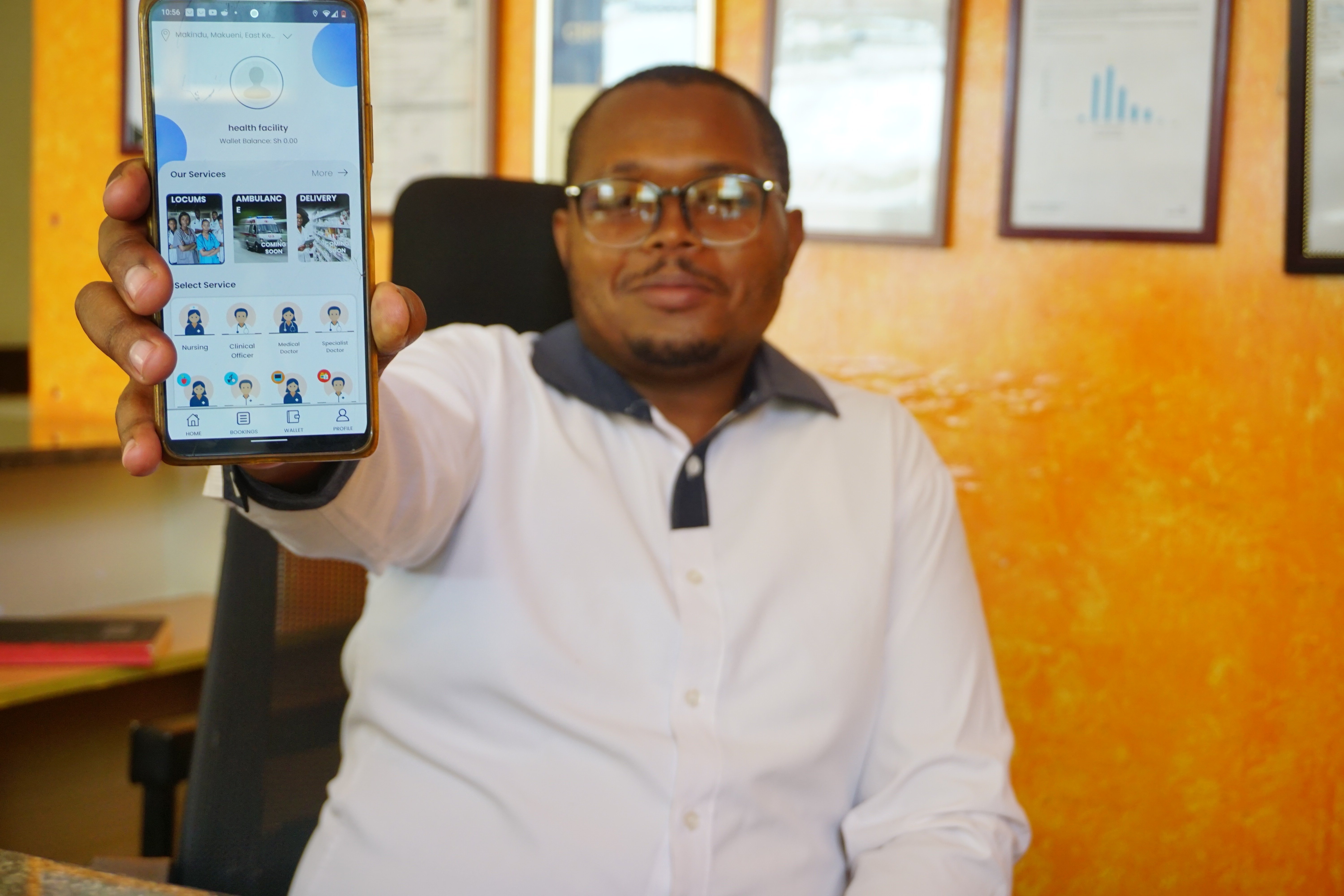March 16, 2023 in Africa
A patient's needs and the seriousness of the disease are not the only factors that determine referral to the hospital. Healthcare managers constantly refer patients due to lack of professionals within their geographical location, leading to potential medical consequences for the patient, and increasing healthcare expenditure. In Kenya, understaffing in rural primary care facilities is particularly acute - where the doctor population ratio in rural areas is 1:33,000 compared to 1:1,700 in urban areas.
A patient's needs and the seriousness of the disease are not the only factors that determine referral to the hospital. Healthcare managers constantly refer patients due to lack of professionals within their geographical location, leading to potential medical consequences for the patient, and increasing healthcare expenditure. In Kenya, understaffing in rural primary care facilities is particularly acute - where the doctor population ratio in rural areas is 1:33,000 compared to 1:1,700 in urban areas.
Against this backdrop, OnLocum’s goal is to ensure that healthcare facilities can consistently provide high-quality patient care despite staff shortages or a sudden surge in volume. OnLocum’s Business-to-Business-to-Consumer (B2B2C) healthcare staffing platform connects flexible, available healthcare professionals to on-demand short- and medium-term work opportunities in healthcare facilities. The mobile app is available on Google’s Playstore for healthcare providers and professionals.
 The three co-founders: Caroline Wanjiku, Eric Mulatya, and James Nthale, combined, have over three decades of experience as healthcare managers at a hospital in rural Kenya. They have experienced understaffing in hospitals and the negative impact on the quality of care for patients.
The three co-founders: Caroline Wanjiku, Eric Mulatya, and James Nthale, combined, have over three decades of experience as healthcare managers at a hospital in rural Kenya. They have experienced understaffing in hospitals and the negative impact on the quality of care for patients.
“OnLocum’s journey began when Caroline’s daughter was born. Shortly after, Caroline was diagnosed with Massive Depressive Disorder. Even though she worked in one of the biggest private hospitals in Makueni County, she was forced to travel 180 km to Nairobi to see a specialist. She made that round trip once every week for the next six weeks. It was physically and mentally exhausting and very expensive,” shares Eric Mulatya, CEO, OnLocum.
“Caroline was alive to the reality of her privilege - that she could afford healthcare and that we had a hospital to manage. The pressure of sourcing for staff just in time became very personal for us, with every patient referral presenting as a failure on our part as managers. As we tried and tested different iterations to tackle the problem, a Minimum Viable Product was piloted in January 2022, and OnLocum was born. We reduced the average shift-booking time at the hospital from 24 hours to 10 minutes. OnLocum is now used by early adopters, and we are on track for broad commercial distribution.”
Joining the Future of Work Africa 2022 Accelerator
“Applying for the Future of Work Africa accelerator program was an absolute no-brainer for us, and getting accepted for the 2022 cohort gave us a sense of validation. The timing was perfect, and the insights we gained were invaluable,” continues Eric. “It was amazing to connect with founders from across Africa and to realize that the solutions founders were addressing were common to us all, regardless of geographical limitations. The program was structured so we could interrogate assumptions about our business, validate and identify gaps in our business model and strategy, and it provided a framework to package our venture in readiness for the investor conversation.
The Peer Due Diligence sessions among the cohort members helped us get accustomed to pitching our businesses to ‘investors’ in a safe environment.
Program Takeaways
Founders can sometimes get infatuated with a particular aspect of their venture and in doing so, suffer gaps in areas that are vital to the success of the business. The Venture Investment Readiness Awareness Levels (VIRAL) framework helped entrepreneurs to evaluate every aspect of their business. Eric shares their “AHA” moments:
The facilitators were available for consultation at every stage of the process, during and after the interactive immersion weeks. Our biggest takeaway was that profit is not the only measure of success in a business, and that the impact on the people and the planet should also be measured.
In a sense, the VIRAL framework is like a cheat sheet to do your venture right from the very beginning. It is our responsibility as business leaders to use the insights we earn in our areas of service to make lives better for the communities we live in. We believe that on-demand staffing is, and will continue to be, a huge component of the future of work - particularly in healthcare.
Like every startup, we have a vision of doing something meaningful, and realize that we need partners to achieve our audacious goals. On behalf of the OnLocum team, we are grateful to Village Capital for being part of our journey.”
Our newsletters share the latest about our programs, trends, ecosystem leaders, and innovative entrepreneurs in the impact world. Get the latest insights, right in your inbox by subscribing:
Village Capital needs the contact information you provide to us to contact you about our products and services. You may unsubscribe from these communications at any time. For information on how to unsubscribe, as well as our privacy practices and commitment to protecting your privacy, please review our Privacy Policy.